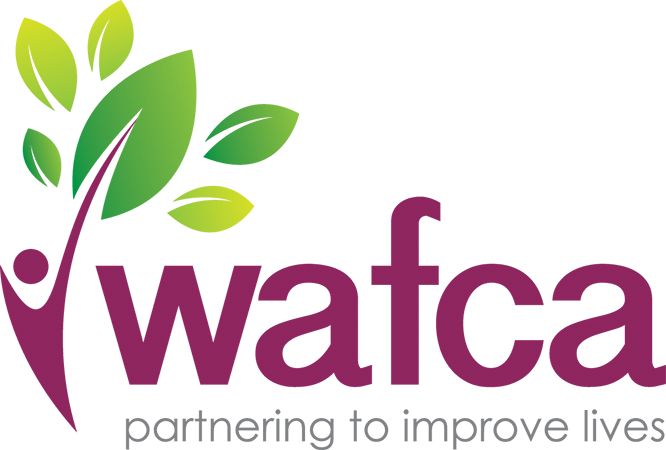Federal PolicyWAFCA monitors budget and legislative activity at the federal level and curates information that impacts the sector so that it's easier for our members to stay informed, navigate shifts in policy, and take action. Below you will find current federal updates and select resources. Consider membership if you are interested in becoming part of a network dedicated to improving policy and lives! March Policy & Resource UpdatesFederal Continuing Resolution Extends Funding through September 2025 – Proposed Medicaid Cuts Still Ongoing Concern. Congress adopted a funding resolution last week to avert a government shutdown providing additional time for the Senate and House to continue formulating a FY25 federal spending through the budget reconciliation process. Proposed spending cuts that will land on federal Medicaid spending (KFF, 3/7) are still on the table and advocacy to protect Medicaid continues to be vital. The Wisconsin Medicaid Coalition continues to circulate valuable resources to tell the story of Medicaid in Wisconsin including two interactive maps to demonstrate specific regional impacts of potential Medicaid cuts alongside expiration of ACA premium subsidies.
WAFCA is continuing to host weekly Member Connection sessions to provide timely information on emerging state and federal activity of interest. February Policy & Resource UpdatesProtect Medicaid. Congress is currently considering proposals to substantially reduce federal Medicaid spending. Medicaid is a cornerstone of Wisconsin's health care delivery system and any shift in the federal commitment will directly impact an array of programs funded by Medicaid that support long term care, disability services and critical mental health services. Federal lawmakers need to know that Medicaid matters to Wisconsin and it matters to mental health!
Tracking Executive Orders Impacting Nonprofit Organizations. Since the change in federal administration, the President has issued an array of Executive Orders (EOs) covering a broad range of issues, including diversity, equity, and inclusion programs; government grants and contracts; civic engagement; immigration; and certain nonprofit subsectors. This resource by the National Council of Nonprofits outlines some of the EOs that may affect nonprofits directly or indirectly and provides updates on legal challenges and impacts. New Report Highlights Progress and Challenges in Mental Health Parity and Addiction Equity. The U.S. Departments of Labor, Health and Human Services, and the Treasury released their 2024 report to congress on the enforcement and implementation of the Mental Health Parity and Addiction Equity Act (MHPAEA). The report details the progress made by group health plans and health insurance issuers in meeting compliance standards, while also identifying areas for improvement to ensure parity with medical and surgical benefits. It also outlines ongoing federal efforts to strengthen MHPAEA protections, reduce barriers for beneficiaries, and increase awareness of the Act’s protections. SAMHSA Releases Updated National Behavioral Health Crisis Care Guidance. The Substance Abuse and Mental Health Services Administration (SAMHSA) has released the National Behavioral Health Crisis Care Guidance, which highlights the importance of follow-up services, care coordination, key service intersections, and the development of crisis systems. The guidance includes three documents:
December Policy Updates
Chafee Turns 25. December 14, 2024, marks 25 years since the passage of the John H. Chafee Foster Care Program for Successful Transition to Adulthood. This week, advocates from across the country gathered in Washington, DC, to celebrate this significant milestone, reflect on its successes and strategize for the future. The most recent data regarding young people transitioning from foster care indicates that in FY2021, more than 19,000 young people nationwide emancipated (or aged out), meaning they reached the state legal age of adulthood or end of foster care. According to the Older Youth Outcomes Dashboard maintained by WI DCF, 141 young people aged out in 2023. Those youth, assuming they spent at least 6 months in foster care, are all eligible for Chafee supports and services delivered through regional Transition Resource Agencies. To learn more about Wisconsin's Independent Living Program, visit the DCF website. ACYF Informational Session. On December 5, the Administration for Children, Youth & Families (ACYF) published a final rule amending the Adoption and Foster Care Analysis and Reporting System (AFCARS) regulations (view the IM). This rule requires state Title IV-E agencies to collect and report data elements related to the procedural protections of the Indian Child Welfare Act of 1978 (ICWA). ACYF will hold an information session for Title IV-E agencies and the public to provide an overview of the final rule on Thursday, December 19, at 2:30 p.m. CT. Register here to join. A 50 State Review of Efforts to Address Health Disparities. This report from KFF outlines the extensive efforts undertaken by states to address health disparities and advance health equity, with key themes including governance structures, community engagement, cross-sector initiatives, workforce diversification, and data equity. The report found success factors include strong leadership, authentic community partnerships, and sustainability planning using data; however, efforts and resources vary widely. US Senators and Congressional DelegationWisconsin US Senators / Wisconsin Congressional Delegation Child Welfare
Mental Health & Substance Use
Medicaid |

